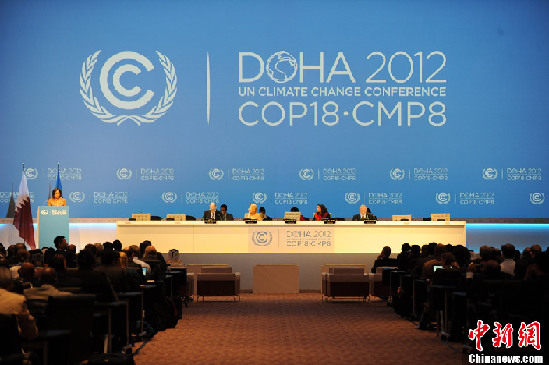Doha climate talks extended
 0 Comment(s)
0 Comment(s) Print
Print E-mail CNTV, December 8, 2012
E-mail CNTV, December 8, 2012

Nearly 200 countries haggling over how to stop climate change - and how to pay for it - failed to reach a deal on schedule Friday. That sets the stage for the wrangling to continue late into the night.
As the 12-day UN climate conference entered its final day, divergence remained on major negotiating tracks and the talks now have been extended.
Abduliah Bin-hamad Al Attiyah, Doha Climate Conference Chairman, said "The solution is in your hands before you leave. Give me the solution and give me the blessing, and leave. So please, I want you to come back at 11 o’clock with the white smoke. Thank you."
The U.S. and other developed countries rejected a draft agreement put on the table Friday. Several developing countries also said they couldn’t accept the wording of some paragraphs.
One of the key disagreements was over money. Poor countries want firm commitments from rich nations to scale up climate aid for them to 100 billion dollars annually by 2020, a general pledge that was made three years ago.
But rich nations are unwilling to commit to specific targets now, citing world financial turmoil and pressure on their budgets.
Negotiators were also trying to finalize an agreement to formally extend the Kyoto Protocol, an emissions reduction pact for rich countries that expires at the end of this year.
One of the sticking points was whether to allow countries to carry over surplus emissions allowances into the next phase.
The U.S. never joined Kyoto while Japan, New Zealand, Canada and Russia don’t want to be part of the extension. That means it would only cover about 15 percent of the world’s emissions of greenhouse gases.
The goal of the U.N. talks is to take measures to keep temperatures from rising more than 2 degrees Celcius, compared to preindustrial times.
But the temperatures have already risen about 0.8 degrees above that level.






Go to Forum >>0 Comment(s)